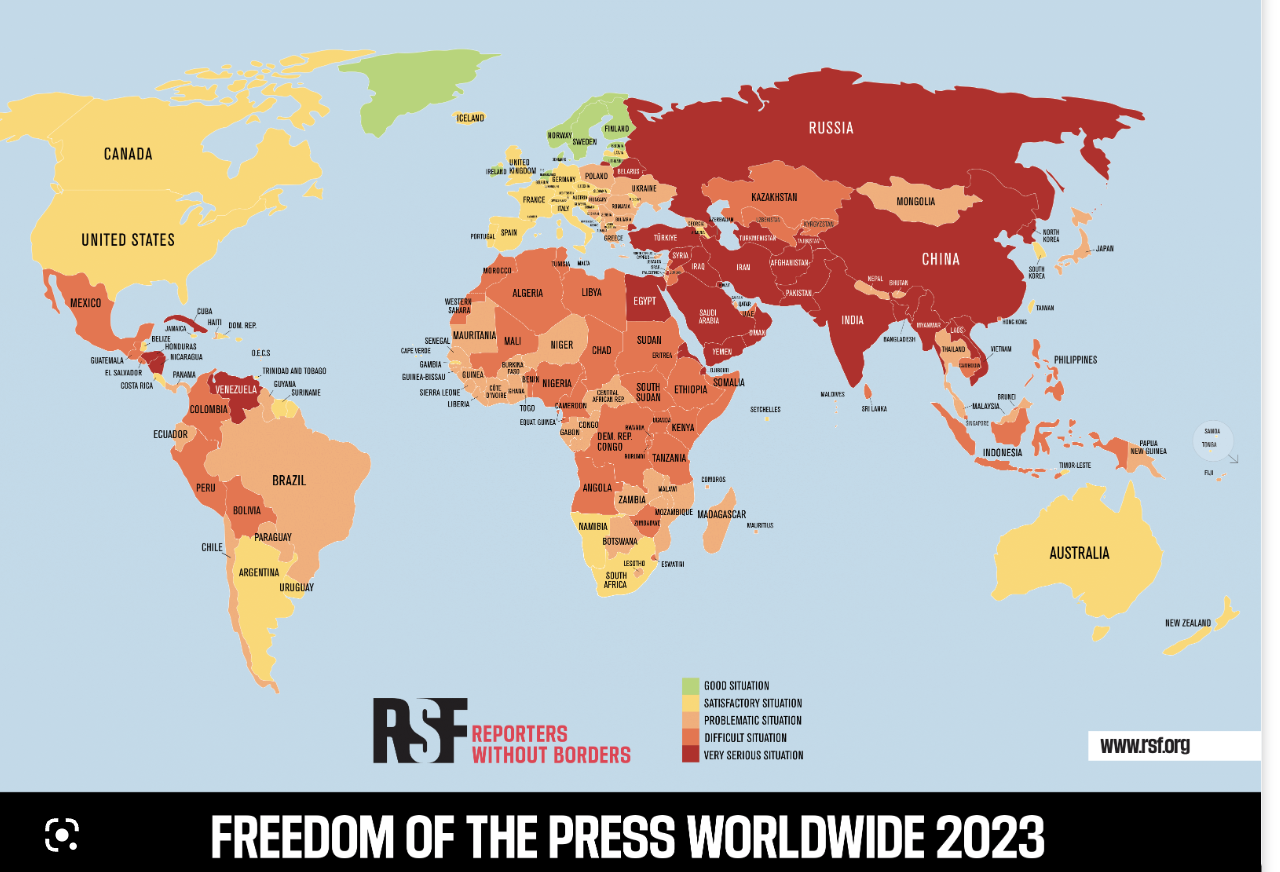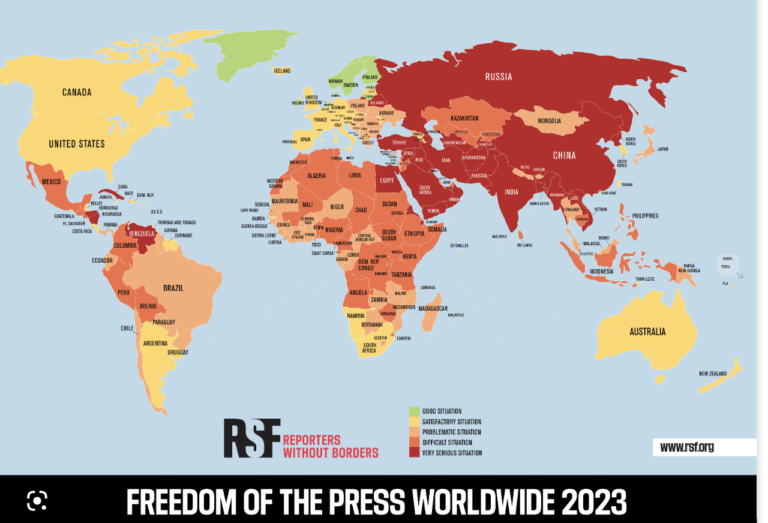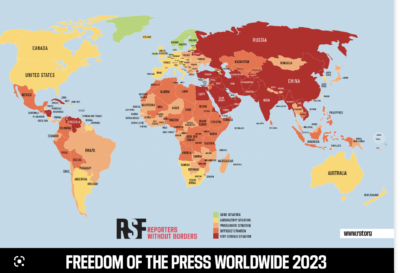Disinformation and AI create a dire media environment and support the fake media industry.
The 21st edition of World Press Freedom Index, a major industry report prepared by the Reporters without Borders and published on May 3rd leaves no illusions: technology is threatening journalism and feeding the fake content industry, while the media freedom drop is getting even more dramatic worldwide in comparison with last year.
“The World Press Freedom Index shows enormous volatility in situations, with major rises and falls and unprecedented changes, such as Brazil’s 18-place rise and Senegal’s 31-place fall. This instability is the result of increased aggressiveness on the part of the authorities in many countries and growing animosity towards journalists on social media and in the physical world. The volatility is also the consequence of growth in the fake content industry, which produces and distributes disinformation and provides the tools for manufacturing it.”
Christophe Deloire, RSF Secretary-General
The bad news
The report evaluates 180 countries worldwide with a special focus on major social, political and tech triggered disruptions. In 2023 the data are devastating: as many as ⅔ of respondents (118 countries) reported that politicians in their respective countries were directly involved in massive propaganda or disinformation campaigns, and as an effect the difference between the truth and false was being blurred, while the right to information was jeopardized. At the same time the quality journalism is undermined and weakened, as the disinformation industry is increasing the scale of fake news damage, while the AI is making this disastrous situation even worse.
The good news
In contrast to the rest of the world, according to the report the media environment in Central Europe got better. The Czech Republic, with the highest score among the V4 neighboring countries. The country rose seven points from 20th place in 2022 to 14th this year., however, the high concentration of privately owned media remains a threat to the freedom of expression and journalism. Meanwhile, Slovakia noted the most dramatic rise of ten points from 27th place last year to 17th. this year. According to the authors, this is because the government has partially succeeded in rendering justice for the murder of investigative journalist Jan Kuciak and his fiancee in 2018, however, the media environment remains hostile for journalists, while public and private media are vulnerable to the particular interests of business and media owners.
Also Poland has risen nine places, from 66 to 57, however, as Index authors reported, the polarization is still on the rise and journalists are often affected by violence, both offline and online. While the media landscape remains robust, politicians often use SLAPP and verbal violence against critical journalists. Public funding and advertising is mainly distributed to the pro-government media with little to no transparency.
The last and the least from the V4 region is Hungary with 72nd place on the Index list. Although the country’s media landscape got better – 13 points in comparison with last year, the political and economic pressure on independent media outlets remains strong, while Viktor Orban’s media empire continues to serve his party.
Baltic countries – media freedom champions
For the seventh time in a row, Norway remains the most journalism-friendly country in the world, while the Baltics placed themselves high on the list with Lithuania rising from 9th to 7th place this year, followed by Estonia on 8th place this year which makes a four-point-decrease in comparison with the last year due to the self-censorship struggles caused by strict defamation law and cyber bullying. Although not in the top ten, still high in the ranking is Latvia which rose two points since last year, making it to the 16th place. According to the authors, press freedom in the country is respected, what remains challenging is an access to the pluralistic and trustworthy information, particularly in Russian language.
Read the whole ranking on: https://rsf.org/en/index







